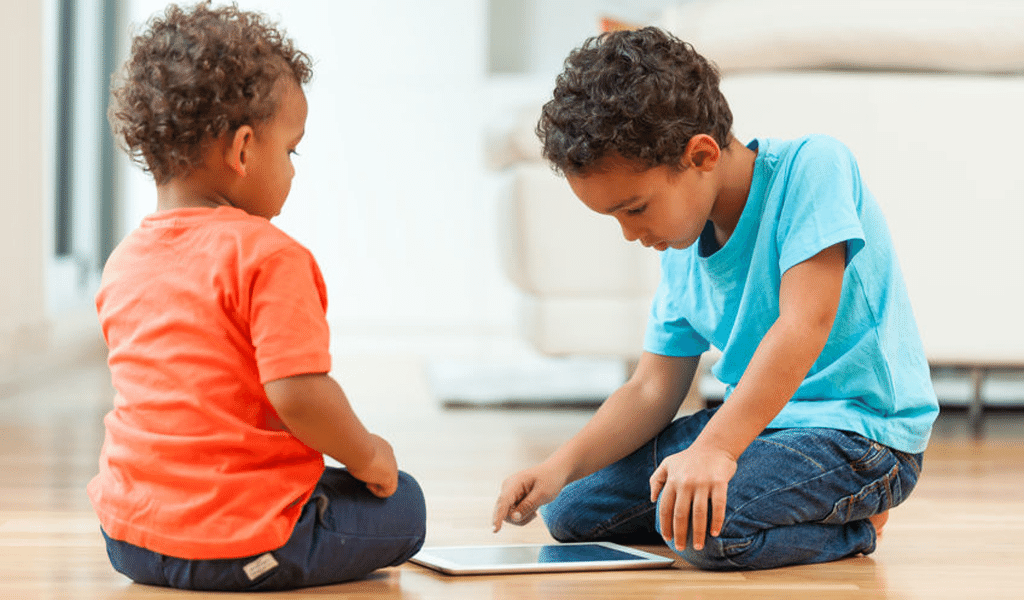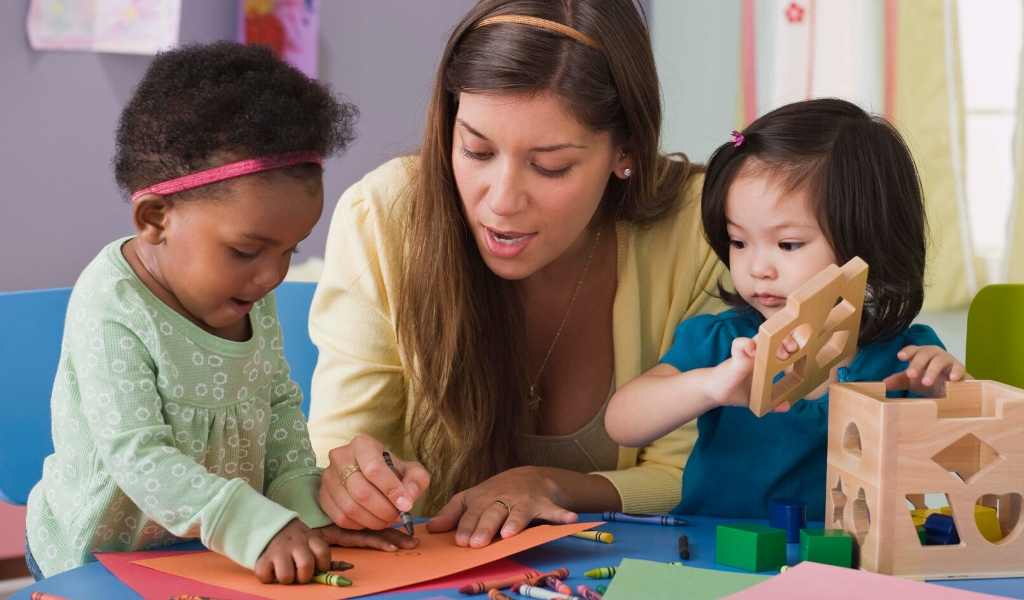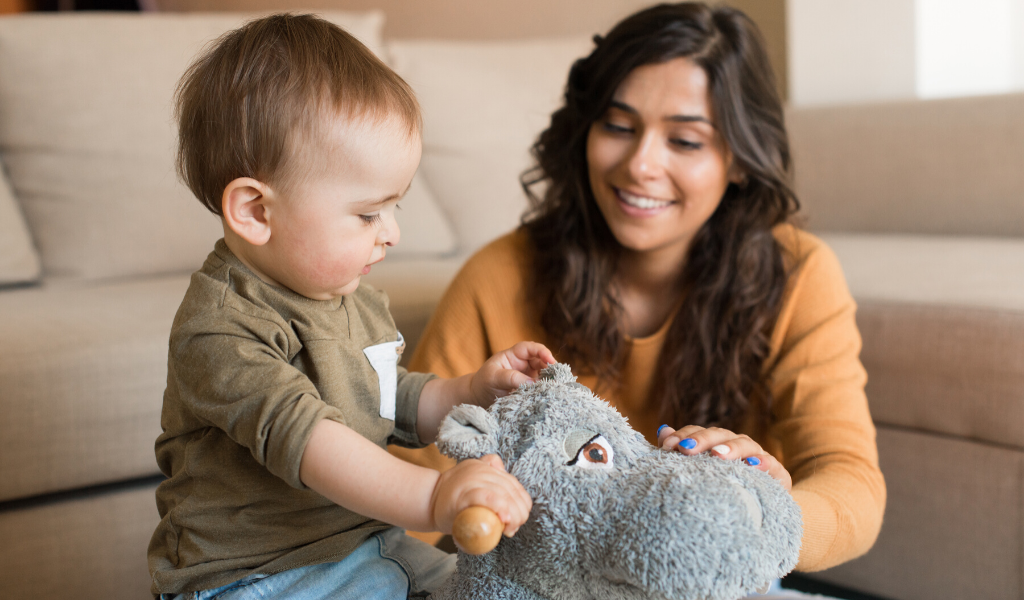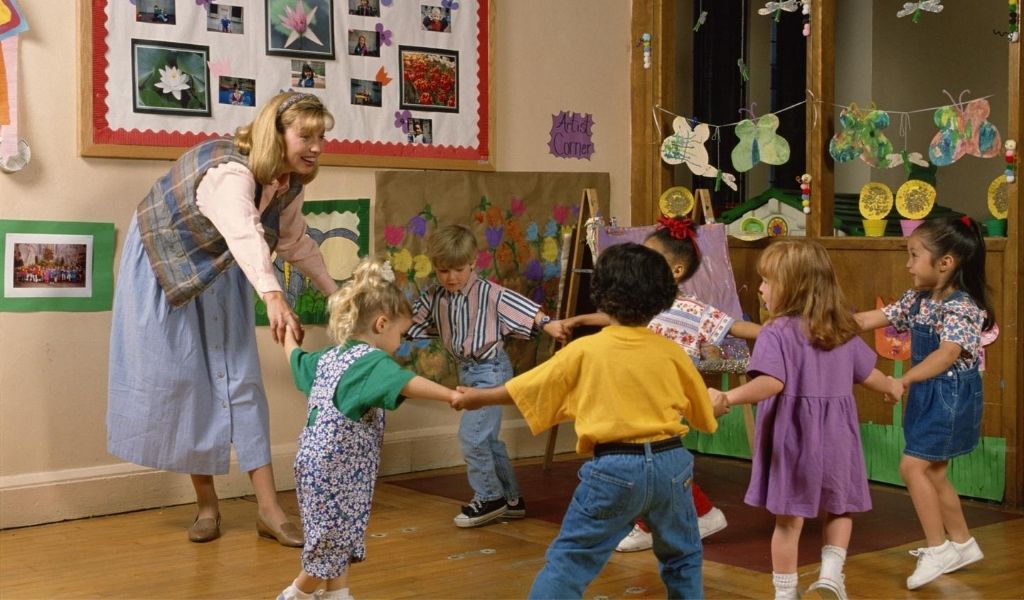It is easy to take every-day nurturing relationships with significant adults for granted as a necessity for babies and young children. However, we don’t always put this commonly held belief into practice. Pioneers, such as Erik Erikson, Anna Freud and Dorothy Burlingham, believed that to pass successfully through the stages of early childhood, children require sensitive and nurturing care to build capacities for:
• trust
• empathy
• compassion
Nurture is nothing new, but for many of us, the concept of nurturing may be. Not everyone is in tune with their emotional state – empathy isn’t something we can switch on and neither is love. If you haven’t thought about the context in which you provide a nurturing environment and how to adopt this within your setting, it is worth thinking about this for your children and families, and the whole setting.

On this blog post, leading educationalist Aaron Bradbury shares with us expert tips to learn how to provide a nurturing environment within your early years setting.
I believe it is important to have supportive, warm and nurturing emotional interactions with babies and young children to help the central nervous system grow effectively. Being able to listen to the human voice helps babies learn sounds and be able to develop their language.
Your early years environment, therefore, is a place where all those nurturing experiences can continually develop over the course of the child’s formative years. It is quite simple to think about our environments and reflect on how we try to cram lots of those learning opportunities within our spaces, but what is the purpose of these certain activities, resources and equipment?
It is the relationships that are formed within your environment which support effective child development through a holistic approach. Therefore, early years practitioners have the opportunities to enhance nurturing and nurturing within the environment through the following:

Nurturing a child’s emotional relationships is at the heart of both intellectual and social growth. At the most basic of levels, relationships foster a sense of warmth, intimacy and pleasure. There are regulatory aspects of relationships – for children not to become over or under-stimulated. This helps children stay calm and become alert for new learning opportunities.
When there are secure, empathetic and nurturing relationships, children are learning to become intimate and empathetic, and will eventually be able to communicate their feelings, reflect their wishes and develop their own relationships.
A secure relationship enables a child to learn to think. Within their interactions, the child goes from desiring mom and going to grab her to saying mom and looking lovingly. They go from acting out their desires or wishes to picture them in their mind and being able to label them with a word. This transformation is the beginning of using symbolic ques for thinking.
Pretend play also plays a huge part with developing cognitive skills. Children will play and act out with many physical objects. For example, with dolls hugging or fighting – this helps the child to learn to connect an image to a wish and then use this image to think.
As practitioners, we have to come to understand that emotional interactions are the foundations of the majority of a child’s intellectual ability. This could include creativity and abstract thinking skills. Emotions are a complex thing but they are actually the internal architects of our minds. Our emotions tell us how and what to think, what we need to say, when to say things and what to do. We “know” things through our emotional interactions and then apply that knowledge to the cognitive world.

Nurturing emotional relationships are the most crucial primary foundation for both intellectual and social growth.
Let’s put the phonics and mathematics to one side and think about how important it is for you to speak with the child, engage and learn about them, just as they are learning about you, and incorporate the mathematical and communication skills as part of this process, rather than seeing it as a separate approach.
Nurturing doesn’t only provide an option to develop bonding skills but also an opportunity to learn about the world, environment and empathy of others. At the most basic of levels, relationships foster many elements such as:
• warmth
• intimacy
• pleasure
• security
The physical environment of your early years setting can have a huge impact in the emotional wellbeing of everyone who comes to your setting. In order for children to feel a sense of safety and become settled whilst in your setting, having a sense of organisation is important. This can be particularly useful if there are children who are experiencing disorganisation within the home, as a structured and orderly setting can contribute to their sense of safety and their wellbeing. A child who may be feeling anxious or lives with constant uncertainty can feel a sense of belonging and soothed by being able to find the construction bricks where he expects them to be within the setting each day. Therefore, making sure that your setting isn’t chaotic or untidy is really important, as this can be confusing for children and they may struggle to understand or even feel an element of fright, or loss.
What you do with your resources and how they are used is far more important than how pretty your resources are. What the children see around them can be a powerful message about how they are being cared for (for example changing tatty and ripped displays, taking away broken toys and equipment, keeping the environment clean and ready).

These common approaches to self-esteem, empathy and learning from each other must have a higher presence in children’s learning before we make the claims that they need to count and learn their phonics. For me, it is clear that for children to thrive and learn cognitively, it is important that we foster and deliver an approach to our learning environments that includes and respects each other. The environment should be welcoming and a place of safety where children can adapt, embrace and learn from one another. I don’t know about you, but I think we need this currently in our society. So, let’s start again and focus on the most important type of learning – learning about oneself and each other.

Aaron Bradbury is Principal Lecturer for Childhood and Early Years at Nottingham Trent University. He is also the Co-Chair of the Early Years Academy and the Steering Group Chair for the newly formed LGBTQIA Early Years. He is passionate about leading and delivering positive outcomes for the early years sector.